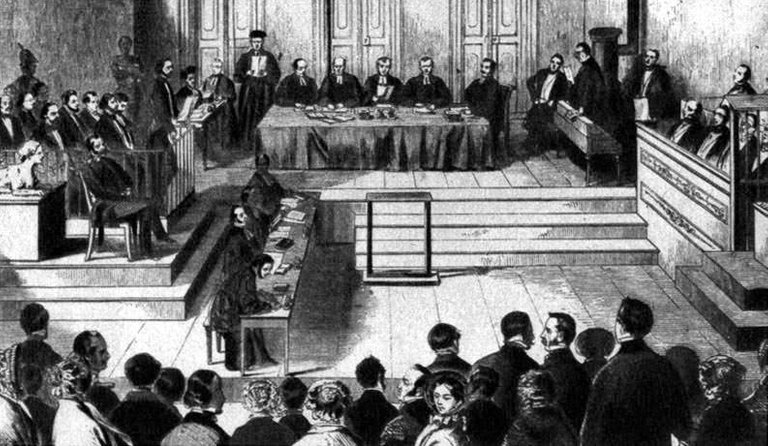The Communist Manifesto

The Communist Manifesto mirrors an endeavor to clarify the objectives of Communism, and additionally the hypothesis hidden this development. It contends that class battles, or the misuse of one class by another, are the propelling power behind every verifiable advancement. Class connections are characterized by a time's method for generation. Be that as it may, in the end these connections stop to be good with the creating strengths of generation. Now, an upheaval happens and another class rises as the decision one. This procedure speaks to the "walk of history" as driven by bigger monetary strengths.
Cutting edge Industrial society in particular is portrayed by class strife between the bourgeoisie and low class. Be that as it may, the gainful strengths of private enterprise are rapidly stopping to be perfect with this exploitative relationship. Therefore, the working class will lead a transformation. Notwithstanding, this insurgency will be of an alternate character than every single past one: past upheavals basically reallocated property for the new governing class. In any case, by the way of their class, the individuals from the low class have no chance to get of appropriating property. In this manner, when they acquire control they will need to obliterate all responsibility for property, and classes themselves will vanish.
The Manifesto contends that this advancement is unavoidable, and that free enterprise is naturally precarious. The Communists expect to advance this insurgency, and will advance the gatherings and affiliations that are moving history towards its common decision. They contend that the disposal of social classes can't happen through changes or changes in government. Or maybe, an unrest will be required.
The Communist Manifesto has four areas. In the main area, it talks about the Communists' hypothesis of history and the relationship amongst proletarians and bourgeoisie. The second area clarifies the relationship between the Communists and the proletarians. The third segment addresses the defects in other, past communist writing. The last area examines the relationship between the Communists and different gatherings.
In 1847, a gathering of radical laborers called the "Comrade League" met in London. They charged Karl Marx and Friedrich Engels, who had as of late ended up individuals, to compose a statement for their sake, soon known as the Communist Manifesto. Marx was the standard creator, with Engels altering and helping. The Communist Manifesto was initially distributed in London in 1848. Of the considerable number of reports of cutting edge communism, it is the most broadly read and the most persuasive. It is the methodical explanation of the reasoning that has come to be known as Marxism.

Marx (1818-1883) was a German thinker, financial analyst and humanist, and additionally a political progressive. He met Engels (1820-1895) when he moved to Paris after 1843, and they cooperated on a few papers. Marx and Engels are best known for their progressive works about Communism. One of Marx's essential scholarly impacts was the work of G.W.F. Hegel. Hegel's hypothesis presents history as a procedure in which the world gets to be aware of itself as soul. Marx took this thought and encouraged it, contending that as man gets to be aware of himself as soul, the material world causes him to feel progressively estranged from himself. Escape from this distance requires an upheaval.
Marx and Engels were not just substance with guessing about insurgency in theory, in any case. They suspected that hypothesis was just valuable seeing that it advances social change, elucidating the best possible means and closures of upset; they were in this manner creators, as well as activists, and trusted that by conjecturing they were effectively affecting history. The Communist Manifesto can be comprehended as one endeavor to impact history by spreading data about the comrade development.
Marx's hypothesis ought to be comprehended with regards to the hardships endured by nineteenth century laborers in England, France and Germany. The Industrial Revolution of the eighteenth and nineteenth hundreds of years made an apparently perpetual underclass of specialists, a number of whom lived in neediness under shocking working conditions and with minimal political representation. The Communist Manifesto was composed on the eve of the Revolution of 1848 in Germany. The disappointment of this specialist and understudy drove unrest made Marx later overhaul a portion of the contentions and forecasts that show up in the Communist Manifesto. Be that as it may, the general structure of Marx's unique contentions, and additionally its progressive tone, stayed unaltered.
Bourgeoisie - Composing the class of present day Capitalists, the bourgeoisie are the businesses of wage workers, and the proprietors of the method for creation.
Method for creation - The method for generation incorporate not just the physical instruments of generation (apparatuses, machines, and so on.), additionally the techniques for working (aptitudes, types of collaboration, division of work, and so forth.), and information that can be connected to creation (science, and so forth.).
Method of generation - The monetary structure of society that characterizes individuals' method of living. It comprises of the method for creation and in addition the relations of generation.
Low class - The class of current wage-workers. They don't have their own particular method for creation, and in this way they should offer their own particular work to survive.
Relations of creation - The important relations between individuals as required for a specific type of material generation. The relations of creation allude to the dissemination of the method for generation, the types of ownership (group and individual private property), and the dispersion of the item.
~ Thanking you
Ishan Pandey
Source :- https://www.marxists.org/archive/marx/works/download/pdf/Manifesto.pdf
https://upload.wikimedia.org/wikipedia/commons/4/46/1852_Der_Koelner_Kommunistenprozess.jpg
The decay of Capitalism and the creation of commune .
thanx for the support !!
The Communist Manifesto, published on Steemit
https://steemit.com/anarchism/@spacebeard/the-communist-manifesto-preface